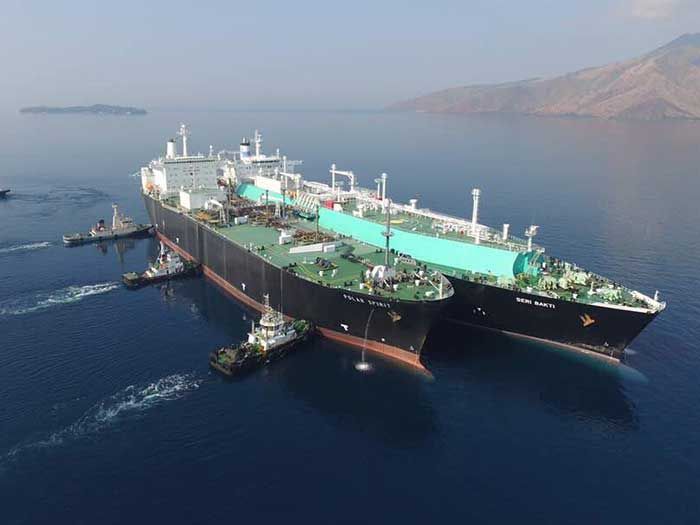LNG Ship to Ship Transfer Guidelines

Liquified Natural Gas (LNG) vessel transfers, or ship-to-ship (STS) transfers, have been on the rise following the first commercial operation of this type in 2007. As do with all transfer operations, standard precautions and guidelines need to observed by well-trained personnel. Here are some LNG vessel transfer guidelines.
One of the procedures before bunkering includes the following:
- Safety zone on receiving ship activated and checked
- Fire equipment on both ships checked and ready for use
- Personal protection equipment on both ships checked and prepared for use
- ESD system on both ships checked and ready for use
LNG Tank System Check
Before bunkering, both ships must check the temperature and pressure of the LNG tanks. If the temperature of the receiving tank is significantly higher than the bunker tank, vapourisation will occur when starting the LNG transfer. This increases the tank pressure and may trigger the pressure relief valve to open if the pressure exceeds the set limit. Therefore, the combined temperature and pressure range of both tanks must be checked and reduced before beginning the transfer.
Connection of Bunking Hoses
A common way to deliver bunker hoses from the bunker ship to the receiving ship is to use a hose crane. Otherwise, certain bunker ships have a specialised hose handling equipment. The hoses need to be supported to the receiving ship, disconnected from the hose crane and connected to the manifold. One safety procedure to take note of is to ensure that each manifold is earthed and equipped with an insulating flange. This is to prevent a possible explosion due to the electrostatic build-up.
Other aspects include mooring operations, having an appropriate emergency response, setting up the contingency plan and equipment, knowing the regulations and guidelines governing STS and transfer operations and more. Ship personnel need to be trained in these aspects to ensure safe operations during LNG vessel transfer.
Advanced LNG Vessel Transfer and STS – Operations, Methods and Claims Handling to the Oil & Gas Industry is a 3-day course held from 18-20 June 2018 in Singapore, and designed to equip delegates with a detailed practical grounding in the fundamentals of advanced STS and LNG transfer operations. Delegates will learn the practical tools and techniques that can be utiltised to manage risk more effectively and make better practical decisions while handling.
Opus Kinetic believes that people are why organisations are successful, and giving people the knowledge to perform well at their job is integral for success. We pride ourselves as the premier provider of knowledge, offering acclaimed in-house trainings, and many others professional training courses spanning from various industries. Our training courses are well researched and updated with the latest industry trends. For more information on our professional training programs, you can visit us at http://www.opuskinetic.com/training.
